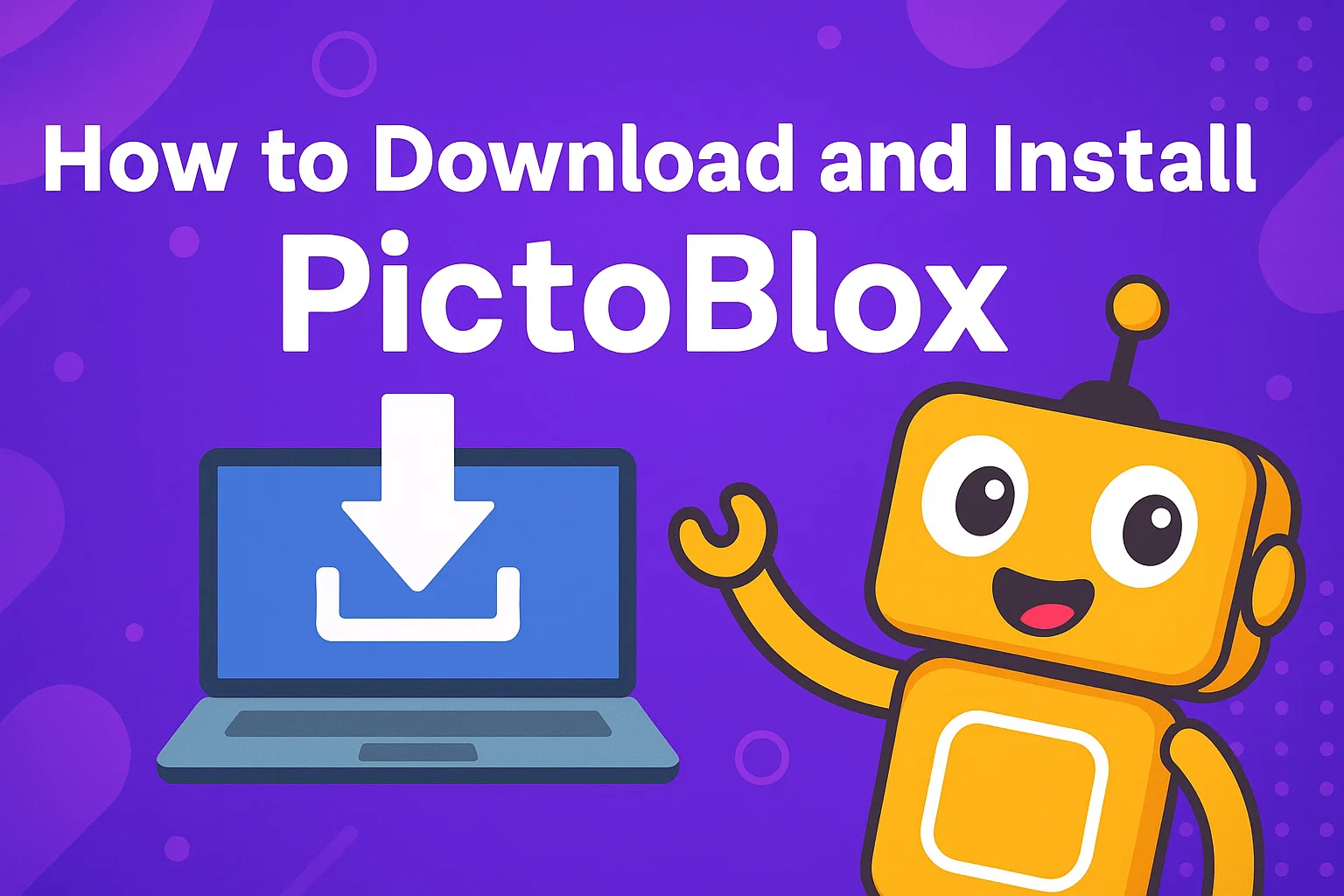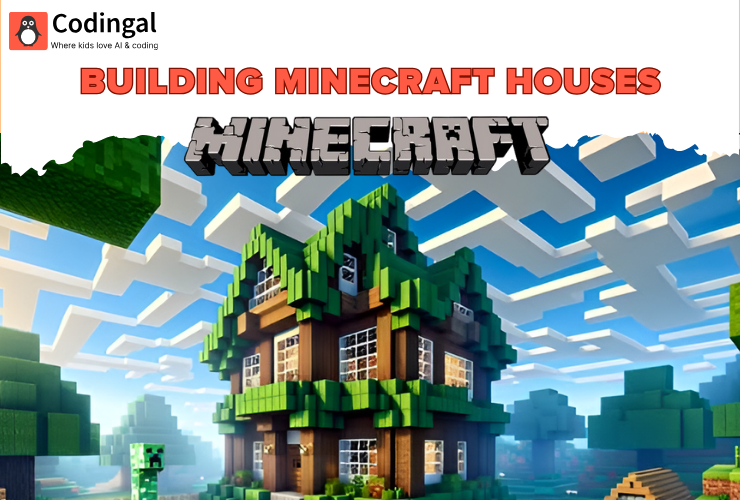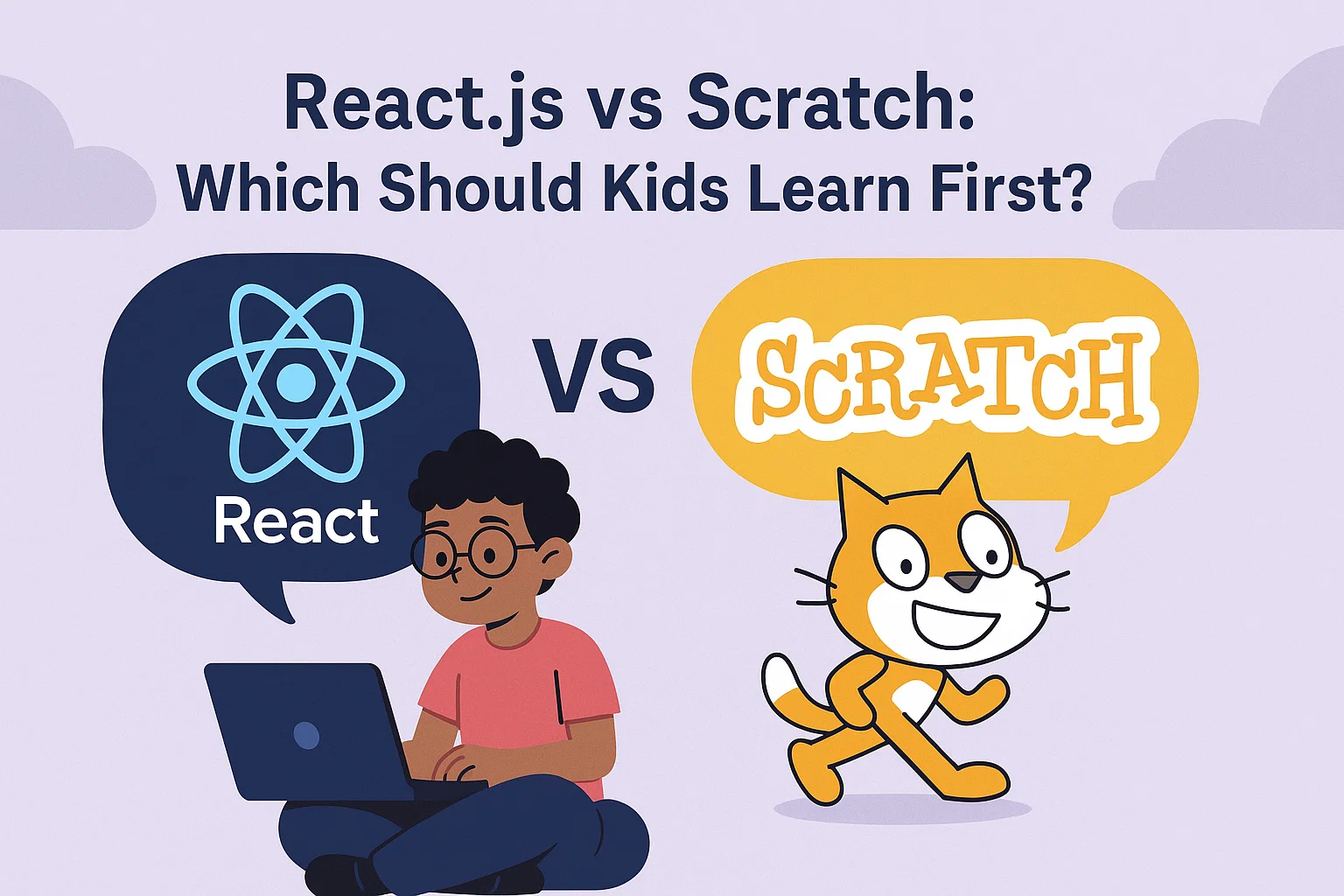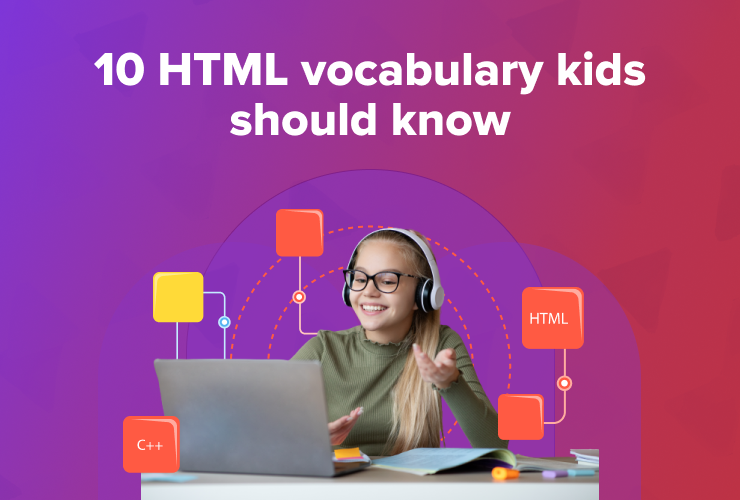Introduction
In today’s rapidly evolving digital landscape, the demand for AI and machine learning specialists continues to surge. The World Economic Forum’s 2025 Future of Jobs Report forecasts that AI and machine learning specialists will be one of the highest demand roles by 2030 (Training Industry). However, traditional coding education often falls short of providing the hands-on, project-based learning that truly prepares students for real-world challenges. This is where comprehensive AI and coding mastery programs make the difference—by enabling students to build 150+ real-world projects that bridge the gap between theoretical knowledge and practical application.
Codingal, a Y Combinator-backed online coding and AI education platform, has revolutionized how K-12 students worldwide approach programming education (Codingal). With over 500,000 registered students across 70+ countries and a 4.8/5 average class rating, Codingal’s project-based curriculum stands out by offering extensive hands-on experience through live, interactive courses that cover everything from foundational block-based coding to advanced AI and machine learning concepts (Codingal).
The key to mastering AI and coding lies not just in understanding syntax or algorithms, but in applying these concepts to solve real problems through meaningful projects. This comprehensive approach to learning ensures students don’t just memorize code—they become creators, innovators, and problem-solvers ready to tackle tomorrow’s technological challenges.
The Power of Project-Based Learning in AI and Coding Education
Why Traditional Coding Education Falls Short
Many coding programs focus heavily on theoretical concepts without providing sufficient opportunities for practical application. Students might learn about variables, loops, and functions in isolation, but struggle to connect these concepts to real-world problem-solving. This disconnect often leads to what educators call the “knowledge-application gap”—students can recite programming principles but can’t effectively use them to build functional applications.
Research shows that only 12% of IT professionals have extensive experience working with AI, and 90% of executives don’t completely understand their team’s AI skills and proficiency (Training Industry). This skills gap highlights the critical need for educational approaches that emphasize hands-on experience and practical project development.
The Project-Based Learning Advantage
Project-based learning transforms abstract coding concepts into tangible, meaningful experiences. When students build real applications—whether it’s a game, a website, or an AI model—they encounter authentic challenges that require creative problem-solving, debugging skills, and iterative thinking. This approach mirrors how professional developers actually work, making the transition from student to practitioner much smoother.
Codingal’s curriculum is designed around Bloom’s Taxonomy, a standard guideline for K-12 content development, which includes 6 stages of learning: remember, understand, apply, analyze, evaluate, and create (Codingal Curriculum). This pedagogical foundation ensures that students don’t just memorize code patterns but develop deep understanding through progressive skill building that culminates in creative project development.
The platform has developed an in-house BIDE (Broad, Inspiring, Deep & Efficient) model to cater to the unique learning abilities of each child (Codingal Curriculum). This personalized approach ensures that every student can engage with projects at their appropriate skill level while being challenged to grow.
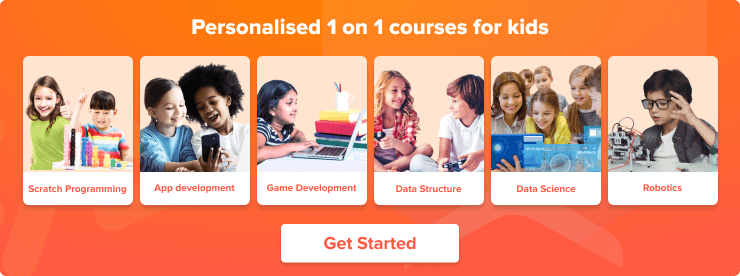
Codingal’s Comprehensive Project Portfolio: 150+ Real-World Applications
Foundational Projects: Building Core Skills
Codingal’s project-based approach begins with foundational concepts that students can immediately apply to create functional applications. The platform’s curriculum spans multiple programming languages and technologies, ensuring students gain exposure to diverse development environments.
The Coding Prodigy course includes 96 lessons, over 184 activities, and more than 96 quizzes, structured to cater to different grade levels from Grade 1 to Grade 12 (Coding Prodigy). This comprehensive structure ensures that students build projects progressively, starting with simple animations and games before advancing to complex web applications and AI systems.
For students ready for advanced challenges, the Coding Grandmaster course offers 144 lessons, over 350 activities, and more than 144 quizzes (Coding Grandmaster). This intensive program is designed for child geniuses who want to excel at coding and build complex websites, games, and applications that demonstrate professional-level skills.
Game Development Projects
Game development serves as an excellent entry point for young programmers because it combines creativity with technical skills. Students learn fundamental programming concepts like loops, conditionals, and functions while creating engaging, interactive experiences.
Codingal’s game development curriculum includes projects using popular platforms and tools. Students might start with simple Scratch-based games that teach basic programming logic, then progress to more sophisticated projects using Python’s Pygame library (Codingal Pygame). These projects range from classic arcade-style games to modern puzzle games that incorporate physics engines and complex game mechanics.
The progression from visual programming environments to text-based coding helps students understand how high-level concepts translate into actual code. By the time students complete their game development projects, they’ve mastered essential programming concepts while creating portfolio pieces that demonstrate their creativity and technical competence.
Web Development and App Creation
Web development projects provide students with immediately visible results and practical skills that apply directly to modern career paths. Codingal’s web development curriculum covers both front-end and back-end technologies, enabling students to build complete web applications from scratch.
Students learn to create responsive websites using HTML, CSS, and JavaScript, then advance to more complex projects involving databases, user authentication, and dynamic content management. These projects might include personal portfolio websites, e-commerce platforms, social media applications, or educational tools that solve real problems in their communities.
Mobile app development extends these skills to the rapidly growing mobile ecosystem. Using platforms like MIT App Inventor and Thunkable, students create functional mobile applications that can be published to app stores. These projects teach important concepts like user interface design, data persistence, and API integration while producing applications that friends and family can actually use.
AI and Machine Learning Projects
As artificial intelligence becomes increasingly important across all industries, Codingal’s AI curriculum ensures students gain hands-on experience with cutting-edge technologies. The platform’s AI projects range from simple chatbots to sophisticated machine learning models that can recognize patterns, make predictions, and solve complex problems.
Students work with popular AI frameworks and tools, learning to implement algorithms for image recognition, natural language processing, and predictive analytics. These projects might include developing AI-powered games, creating recommendation systems, or building chatbots that can engage in meaningful conversations.
One notable example is the EcoStubbleAI project, which addresses the critical issue of stubble burning in the Delhi and Punjab regions using artificial intelligence to provide efficient and cost-effective methods for stubble disposal (EcoStubbleAI). This project demonstrates how students can apply AI concepts to solve real environmental challenges, analyzing grain and field data to generate comprehensive reports on stubble volume and quality.
Another impressive project is the SweepAI-Intelligent-Cleaning-System, which showcases an intelligent cleaning agent that uses various search algorithms to enhance cleaning efficiency in dynamic environments (SweepAI). The cleaning agent operates in a 2D grid environment and uses four different search algorithms to navigate and clean dirty rooms, demonstrating practical applications of AI in robotics and automation.
Advanced Programming Concepts Through Real Projects
Data Science and Analytics Projects
Data science represents one of the fastest-growing fields in technology, and Codingal’s curriculum ensures students gain practical experience with data analysis, visualization, and interpretation. Students work with real datasets to uncover insights, create compelling visualizations, and build predictive models.
These projects might involve analyzing social media trends, predicting sports outcomes, or examining environmental data to identify patterns and correlations. Students learn to use popular data science tools and libraries while developing critical thinking skills that help them ask meaningful questions about data and interpret results responsibly.
The hands-on approach to data science education ensures students understand not just the technical aspects of data analysis, but also the ethical considerations and real-world implications of their findings. This comprehensive understanding prepares them for careers in fields ranging from business analytics to scientific research.
Java Programming Excellence
Java remains one of the most important programming languages in enterprise development, and Codingal’s Java course provides comprehensive coverage through practical projects (Codingal Java). The course duration spans 2-4 months and includes 50+ activities and projects that progressively build students’ Java programming skills.
Java projects in the curriculum range from simple console applications to complex object-oriented systems that demonstrate professional programming practices. Students learn essential concepts like inheritance, polymorphism, and encapsulation through projects that solve real problems and create functional applications.
The emphasis on project-based learning in Java education ensures students understand not just the syntax of the language, but also the design patterns and architectural principles that make Java applications maintainable and scalable. These skills directly translate to professional development environments where Java powers everything from web applications to mobile apps to enterprise systems.
Animation and Creative Coding
Creative coding projects help students understand that programming is not just about solving technical problems—it’s also a medium for artistic expression and creative exploration (Codingal Animation). Animation projects combine technical skills with artistic vision, teaching students to create compelling visual experiences through code.
These projects might involve creating animated stories, interactive art installations, or dynamic visualizations that respond to user input or real-time data. Students learn to work with graphics libraries, understand principles of animation and design, and develop an appreciation for the intersection of technology and creativity.
The creative coding curriculum helps students see programming as a tool for self-expression while building technical skills that apply to fields like game development, web design, and digital media production.
The Competitive Advantage: How Codingal Stands Apart
Comprehensive Curriculum Depth
While many coding education platforms offer basic programming courses, Codingal’s curriculum depth sets it apart from competitors. The platform’s STEM.org-accredited curriculum aligns with the K-12 Computer Science Framework and CSTA standards, ensuring students receive education that meets rigorous academic standards (Codingal).
Codingal’s approach differs significantly from other platforms by offering a truly comprehensive learning experience. Where competitors might focus on single programming languages or narrow skill sets, Codingal provides exposure to multiple programming languages, development environments, and application domains (Codingal vs WhiteHat Jr).
The platform’s curriculum covers foundational block-based coding through advanced topics like data science and Olympiad algorithms, helping kids build websites, apps, games, and AI projects while strengthening problem-solving and creative skills (Codingal). This breadth ensures students develop well-rounded programming skills rather than narrow expertise in single areas.
Live, Interactive Learning Experience
Codingal’s commitment to live, interactive instruction distinguishes it from platforms that rely primarily on pre-recorded content or self-paced learning modules. The platform offers both 1-on-1 live coding classes and small-group coding classes, ensuring students receive personalized attention and immediate feedback on their projects (Codingal).
This interactive approach proves particularly valuable for project-based learning, where students often encounter unexpected challenges that require real-time guidance and support. Expert instructors from computer science backgrounds provide mentorship that helps students overcome obstacles, refine their problem-solving approaches, and develop professional coding practices.
The live instruction model also enables collaborative learning experiences where students can share their projects, provide feedback to peers, and learn from each other’s creative approaches to problem-solving. This social aspect of learning mirrors real-world development environments where collaboration and code review are essential skills.
Global Community and Competition Opportunities
Beyond individual project development, Codingal provides students with opportunities to showcase their skills through global coding competitions, hackathons like HPE CodeWars, and online coding camps (Codingal). These events challenge students to apply their project-building skills in competitive environments that simulate real-world development scenarios.
The platform hosts dozens of hackathons and Olympiad-style challenges annually, providing students with opportunities to work on time-constrained projects that test their ability to rapidly prototype solutions and present their work to judges (Codingal). These competitions often result in innovative projects that demonstrate the practical application of coding skills to solve contemporary challenges.
Participation in these events helps students build confidence, develop presentation skills, and gain recognition for their technical achievements. Many students use their competition projects as portfolio pieces for college applications or early career opportunities.
Industry Trends and Future-Ready Skills
The Growing Importance of AI Literacy
As AI continues to reshape industries, educational programs must evolve to prepare students for an AI-driven future. Interactive labs and simulations are becoming essential tools for bridging the AI skills gap, providing hands-on experience that traditional lecture-based approaches cannot match (Training Industry).
Google’s 30-day self-paced learning challenge demonstrates the industry’s recognition that hands-on experience is crucial for AI education (Google Cloud). The challenge aims to transform participants into AI innovators through hands-on labs, competition, and practical skills development, emphasizing the importance of learning by doing rather than passive consumption of content.
Codingal’s AI curriculum aligns with these industry trends by providing students with extensive hands-on experience building AI applications. Students learn to harness the power of generative AI, work with cutting-edge models, and develop practical skills that prepare them for careers in an AI-driven economy.
Innovative Learning Approaches
The education technology sector continues to explore innovative approaches to make learning more engaging and effective. Delta Academy, for example, uses live coding challenges where students compete in teams to build AI models that can play games, with the models then competing against each other in knockout competitions (Towards AI).
This gamified approach to learning demonstrates how competition and play can motivate students to tackle complex technical challenges. Codingal incorporates similar principles through its hackathons, competitions, and project-based challenges that make learning engaging while building practical skills.
The focus on building reinforcement learning models through game-playing scenarios shows how educational platforms are finding creative ways to make advanced AI concepts accessible to younger learners. These approaches prove that complex technical subjects can be taught effectively when presented through engaging, hands-on projects.
Preparing for Professional Development Environments
Modern software development emphasizes collaboration, version control, and iterative development practices. Codingal’s project-based curriculum introduces students to these professional practices early, ensuring they develop not just coding skills but also the workflow and collaboration skills essential for career success.
Students learn to document their projects, present their work to others, and iterate based on feedback—skills that directly translate to professional development environments. The emphasis on building complete, functional applications rather than isolated code snippets helps students understand the full software development lifecycle.
This comprehensive approach to skill development ensures Codingal graduates are prepared not just for further education in computer science, but also for internships, entry-level positions, and entrepreneurial ventures that require practical programming skills.
Success Stories and Real-World Impact
Student Achievement Metrics
Codingal’s success in project-based education is reflected in its impressive student satisfaction metrics. With a 4.9/5 student rating and an NPS of 86, the platform demonstrates that students find value in the hands-on, project-focused approach to learning (Codingal).
The platform’s growth to over 500,000 students across 70+ countries indicates that the project-based learning model resonates with families worldwide who recognize the value of practical, hands-on coding education (Codingal). This global reach also provides students with opportunities to collaborate on projects with peers from diverse cultural and educational backgrounds.
The trust placed in Codingal by leading investors, including Y Combinator backing and funding from Rebright Partners and other tech investors, reflects confidence in the platform’s educational approach and its potential to scale globally.
Portfolio Development and Career Preparation
One of the most significant advantages of project-based learning is the portfolio of work students develop throughout their education. Unlike traditional coding courses that might result in a few simple exercises, Codingal students graduate with extensive portfolios showcasing 150+ projects across multiple domains and technologies.
These portfolios serve multiple purposes: they demonstrate technical competence to college admissions committees, provide talking points for scholarship applications and internship interviews, and give students confidence in their abilities to tackle complex technical challenges. The diversity of projects—from games and websites to AI applications and data analysis tools—shows the breadth of skills students develop.
Many Codingal alumni use their project portfolios to launch entrepreneurial ventures, secure internships at technology companies, or gain admission to competitive computer science programs. The practical experience gained through project development often gives them significant advantages over peers who have only theoretical programming knowledge.
Community Impact and Social Good Projects
Codingal encourages students to use their programming skills to address real-world challenges and contribute to their communities. Projects like EcoStubbleAI demonstrate how students can apply AI concepts to solve environmental problems, while other projects might address social issues, educational challenges, or accessibility concerns.
This emphasis on using technology for social good helps students understand that programming is not just about building commercial applications—it’s also a powerful tool for positive change. Students learn to identify problems in their communities and develop technical solutions that can make meaningful differences in people’s lives.
The platform’s global reach enables students to work on projects that address challenges in different cultural and economic contexts, broadening their understanding of how technology can be applied to diverse problems around the world.
Getting Started: Choosing the Right Program Path
Assessment and Personalized Learning Paths
Codingal’s approach to project-based learning begins with understanding each student’s current skill level, interests, and learning goals. The platform provides personalized learning paths tailored to individual students’ ages and skill levels, ensuring that project assignments are appropriately challenging without being overwhelming (Codingal).
This personalized approach means that a student interested in game development might follow a different project sequence than one focused on web development or AI applications. However, all paths ensure students gain exposure to fundamental programming concepts and develop the problem-solving skills essential for success in any technical field.
The flexibility of Codingal’s curriculum allows students to explore different areas of interest through projects while building a solid foundation in computer science principles. This exploration helps students discover their passions and make informed decisions about future educational and career paths.
Program Options and Flexibility
Codingal offers multiple program formats to accommodate different learning preferences and schedules. Students can choose between 1-on-1 live coding classes for personalized attention or small-group coding classes for collaborative learning experiences (Codingal).
The platform also provides specialized programs like summer and winter coding camps, which offer intensive project-based learning experiences during school breaks. These camps often focus on specific themes or technologies, allowing students to dive deep into particular areas of interest while building substantial projects.
For students preparing for advanced placement exams or competitive programming, Codingal offers specialized tracks like AP Computer Science A Prep and IOI Algorithms & Competitive Programming that combine project-based learning with exam preparation and competition training.
Beyond Individual Learning: School Partnerships
Recognizing that project-based coding education benefits entire educational communities, Codingal offers school partnership and curriculum licensing programs that bring its project-focused approach to traditional educational settings (Codingal). These partnerships enable schools to integrate comprehensive coding education into their curricula without requiring extensive teacher training or curriculum development.
School partnerships often result in collaborative projects where entire classes work together on large-scale applications or participate in inter-school coding competitions. These experiences help students develop teamwork skills while building impressive group projects that demonstrate the power of collaborative development.
The curriculum licensing program also ensures that Codingal’s pedagogical approach and project-based learning methodology can be adapted to different educational contexts while maintaining the quality and effectiveness that have made the platform successful.
Conclusion: Building Tomorrow’s Innovators Today
The future belongs to creators, innovators, and problem-solvers who can harness technology to build solutions for complex challenges. Traditional coding education, with its emphasis on theoretical knowledge and isolated exercises, falls short of preparing students for this future. In contrast, comprehensive AI and coding mastery programs that enable students to build 150+ real-world projects provide the hands-on experience and practical skills essential for success in our increasingly digital world.
Codingal’s project-based approach represents a fundamental shift in how we think about coding education. By combining expert instruction with extensive hands-on project development, the platform ensures students don’t just learn to code—they learn to create, innovate, and solve real problems through technology (Codingal Why). The platform’s comprehensive curriculum, covering everything from foundational programming concepts to advanced AI applications, provides students with the breadth and depth of knowledge needed to excel in any technical field.
The success of Codingal’s approach is evident in its impressive growth, student satisfaction metrics, and the quality of projects students create. With over 500,000 students across 70+ countries and backing from leading investors like Y Combinator, the platform has demonstrated that project-based learning resonates with families worldwide who recognize the value of practical, hands-on education (Codingal).
As we look toward a future where AI and machine learning specialists will be among the most in-demand professionals, the importance of comprehensive, project-based coding education cannot be overstated (Training Industry). Programs that enable students to build extensive portfolios of real-world projects while developing both technical skills and creative problem-solving abilities will be essential for preparing the next generation of technology leaders.
The choice is clear: students can either memorize coding syntax through traditional approaches, or they can unlock their creativity and build the future through comprehensive, project-based learning programs that provide the hands-on experience and practical skills needed to succeed in tomorrow’s technology-driven world. For families seeking the best possible preparation for their children’s futures, the extensive project opportunities and proven success of platforms like Codingal represent an investment in creativity, innovation, and limitless potential.
Frequently Asked Questions
How do AI and coding mastery programs enable students to build 150+ real-world projects?
Comprehensive AI and coding mastery programs like Codingal’s Coding Grandmaster course include 144 lessons, over 350 activities, and more than 144 quizzes structured around project-based learning. Students progress through real-world applications including complex websites, games, and AI-powered solutions like environmental monitoring systems and intelligent cleaning agents, building practical skills through hands-on experience rather than theoretical instruction alone.
What makes project-based coding education more effective than traditional instruction methods?
Project-based education outperforms traditional coding instruction because it engages students in real problem-solving scenarios that mirror industry challenges. According to research, this approach follows Bloom’s Taxonomy principles, progressing from basic understanding to creative application. Students retain knowledge better when they can immediately apply concepts to build tangible projects like games, websites, and AI applications.
What types of real-world projects can students create in AI and coding programs?
Students in comprehensive coding programs create diverse projects including environmental solutions like EcoStubbleAI for addressing stubble burning issues, intelligent cleaning systems using search algorithms, interactive games, complex websites, and AI-powered applications. These projects span multiple programming languages and technologies, from Python-based machine learning models to web development and game design using platforms like PyGame.
How do platforms like Codingal structure their curriculum to maximize student creativity?
Codingal uses an in-house BIDE model (Broad, Inspiring, Deep & Efficient) designed around Bloom’s Taxonomy to cater to each child’s unique learning abilities. Their curriculum spans from Grade 1-12 with courses like Coding Prodigy (96 lessons, 184+ activities) and Coding Grandmaster (144 lessons, 350+ activities), incorporating Java programming, animation, and game development to ensure comprehensive skill development.
Why is there such high demand for AI and coding skills in today’s job market?
The World Economic Forum’s 2025 Future of Jobs Report forecasts that AI and machine learning specialists will be among the highest demand roles by 2030. However, Pluralsight’s 2024 AI Skills Report reveals only 12% of IT professionals have extensive AI experience, creating a significant skills gap. This demand surge is driven by businesses integrating AI into their processes to improve efficiency, decision-making, and innovation.
How do hands-on coding challenges and competitions enhance student learning outcomes?
Interactive learning approaches, such as those used by platforms like Delta Academy, engage students in live coding challenges where they build AI models that compete against each other. This gamified approach to learning reinforcement learning and machine learning concepts keeps students motivated while developing practical skills. The competitive element encourages deeper understanding and creative problem-solving approaches.
Sources
https://cloud.google.com/resources/offers/future-of-ai-build-and-inovate
https://github.com/JagdeepMinhas/SweepAI-Intelligent-Cleaning-System
https://github.com/NDharshan/EcoStubbleAI
https://www.codingal.com/courses/coding-grandmaster/
https://www.codingal.com/courses/coding-prodigy/
https://www.codingal.com/curriculum/
https://www.codingal.com/en-us/
https://www.codingal.com/en-us/courses/animation/
https://www.codingal.com/en-us/courses/java/
https://www.codingal.com/en-us/courses/pygame/
https://www.codingal.com/en-us/why-codingal/
FAQ
How do AI and coding mastery programs enable students to build 150+ real-world projects?
Comprehensive AI and coding mastery programs like Codingal’s Coding Grandmaster course include 144 lessons, over 350 activities, and more than 144 quizzes structured around project-based learning. Students progress through real-world applications including complex websites, games, and AI-powered solutions like environmental monitoring systems and intelligent cleaning agents, building practical skills through hands-on experience rather than theoretical instruction alone.
What makes project-based coding education more effective than traditional instruction methods?
Project-based education outperforms traditional coding instruction because it engages students in real problem-solving scenarios that mirror industry challenges. According to research, this approach follows Bloom’s Taxonomy principles, progressing from basic understanding to creative application. Students retain knowledge better when they can immediately apply concepts to build tangible projects like games, websites, and AI applications.
What types of real-world projects can students create in AI and coding programs?
Students in comprehensive coding programs create diverse projects including environmental solutions like EcoStubbleAI for addressing stubble burning issues, intelligent cleaning systems using search algorithms, interactive games, complex websites, and AI-powered applications. These projects span multiple programming languages and technologies, from Python-based machine learning models to web development and game design using platforms like PyGame.
How do platforms like Codingal structure their curriculum to maximize student creativity?
Codingal uses an in-house BIDE model (Broad, Inspiring, Deep & Efficient) designed around Bloom’s Taxonomy to cater to each child’s unique learning abilities. Their curriculum spans from Grade 1-12 with courses like Coding Prodigy (96 lessons, 184+ activities) and Coding Grandmaster (144 lessons, 350+ activities), incorporating Java programming, animation, and game development to ensure comprehensive skill development.
Why is there such high demand for AI and coding skills in today’s job market?
The World Economic Forum’s 2025 Future of Jobs Report forecasts that AI and machine learning specialists will be among the highest demand roles by 2030. However, Pluralsight’s 2024 AI Skills Report reveals only 12% of IT professionals have extensive AI experience, creating a significant skills gap. This demand surge is driven by businesses integrating AI into their processes to improve efficiency, decision-making, and innovation.
How do hands-on coding challenges and competitions enhance student learning outcomes?
Interactive learning approaches, such as those used by platforms like Delta Academy, engage students in live coding challenges where they build AI models that compete against each other. This gamified approach to learning reinforcement learning and machine learning concepts keeps students motivated while developing practical skills. The competitive element encourages deeper understanding and creative problem-solving approaches.
Citations
https://cloud.google.com/resources/offers/future-of-ai-build-and-inovate
https://github.com/JagdeepMinhas/SweepAI-Intelligent-Cleaning-System
https://github.com/NDharshan/EcoStubbleAI
https://www.codingal.com/courses/coding-grandmaster/
https://www.codingal.com/courses/coding-prodigy/
https://www.codingal.com/curriculum/
https://www.codingal.com/en-us/
https://www.codingal.com/en-us/codingal-vs-whitehatjr/
https://www.codingal.com/en-us/courses/animation/
https://www.codingal.com/en-us/courses/java/
https://www.codingal.com/en-us/courses/pygame/
https://www.codingal.com/en-us/why-codingal/









